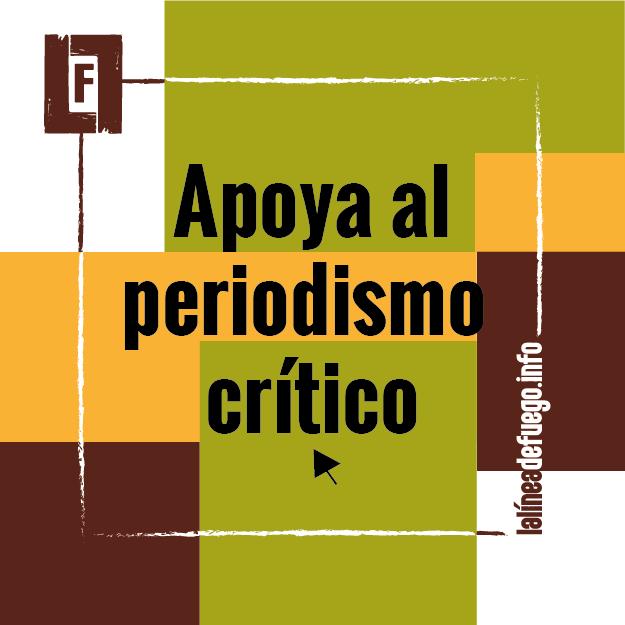La Jornada
05 July 2015
Translation by Lalineadefuego.info
On Wednesday the 1st of July Brazil’s President, Dilma Rousseff, completed the first six months of her second presidential term. Providing a rather alarming backdrop to the occasion were the latest public opinion polls, showing that only 9 percent of Brazilians approve of her government. It is the lowest level reached by a Brazilian President since the resumption of democracy 30 years ago. In March, the government’s approval rating was 12 percent, while now, in July, Dilma’s level of approval is less than that of her own Worker’s Party (PT) (12 percent). Her disapproval rating is at 68 percent, while 61 percent of respondents believe that the situation will get worse.
The effect of the polls was visible first in the more radical opposition, whose spokespeople were quick to demand Rousseff’s resignation. One of the more legitimate representatives of the rabid right, Senator Ronaldo Caiado, a landowner with strong ultraconservative tendencies, said resignation would be a statesmanlike gesture. Another luminary of that far right, Cassio Cunha Lima, also a Senator, asked Dilma to resign ‘so that Brazil’s suffering be cut short.
The neoliberal candidate defeated in last October’s elections, Aécio Neves, a member of the PSDB (Partido de la Social Democracia Brasileña) of former President Fernando Henrique Cardoso, chose sarcasm as his weapon, saying that the president’s approval rating would soon drop below the rate of inflation (8.7 percent).
The reality is that the government’s worst defeats in Congress have been instigated by its supposed allies, in particular the PT’s major partner, the PMDB (Partido de Movimiento Democrático Brasileño) which controls both the House and Senate. With friends like these, there’s little need for the opposition.
Even the most balanced and objective political analysts are pessimistic, projecting that Rousseff’s approval rating will plummet even further.
Not a few claim that she has wasted her political capital absurdly quickly, and that as a consequence it will be increasingly difficult to govern from now on. The room for maneuver for any attempt to regain the confidence of both the electorate and the market has also narrowed significantly, while the risk of her being definitively abandoned by allies and even internal factions of her own party, the PT, has increased, and not by a little.
The three aspects most criticized by those polled are: inflation (prices that were controlled in her previous mandate such as electricity, public transport, water and fuel have rocketed); high interest rates, which have pushed many families in a position of arrears with the banks; and the poor quality of public health services.
In addition, the specter of unemployment has grown due to the country’s severe economic recession. At this point the rate of unemployment is around 10 percent.
This combination of unemployment, inflation and astronomic interest rates shows no sign of abating soon, a fact that will only deepen an already widespread dissatisfaction.
The main opposition party in Congress, the PSDB, is unequivocally determined to vote against anything the government proposes, with the specific objective of further eroding support for Dilma and the PT. As a consequence many measures have been approved that are clearly detrimental in the current economic context, and worse still, run contrary to the PSDB’s entire political trajectory.
The PT’s allies are increasingly fickle, and the major novelty in this rebellion is the pressure the PMDB is putting on Michel Temer, who is both Vice President and the government’s political articulator, to resign. It would be the first step towards the alliance’s leading party abandoning a ship that runs the risk of sinking.
But Dilma’s problems don’t end there. There is more, much more: allegations of corruption continue to be leaked daily and, manipulated by the mass media, are leading the public to believe that Rousseff’s election campaign benefitted from illegal use of financial resources.
The manipulation has been so outrageous that the situation has reached absurd levels. The issue is this: in the last elections both the PT and opposition parties received donations from the same companies. But, according to a Brazilian press absurdly partial to the opposition parties, theirs were legal donations, complying with all electoral legislation requirements. For the PT on the other hand, in spite of the fact that all requirements were complied with in the same way, accordi9ng to the press the donations were illegal, the money stolen. If it were possible to prove it, that would open the way for Congress to legally impeach the President.
The obsessive repetition, coupled with highly selective filtering of information to the press by both the Federal Police and Justice, has only served to muddy the political waters. And, once again, to the clear detriment of Rousseff’s public image.
Consequently, caught between a severe economic crisis and an increasingly tremendous political crisis, the government is being beaten up on all sides. And no one is daring to predict what the outcome will be.
Original article: http://www.jornada.unam.mx/2015/07/05/politica/016a2pol



